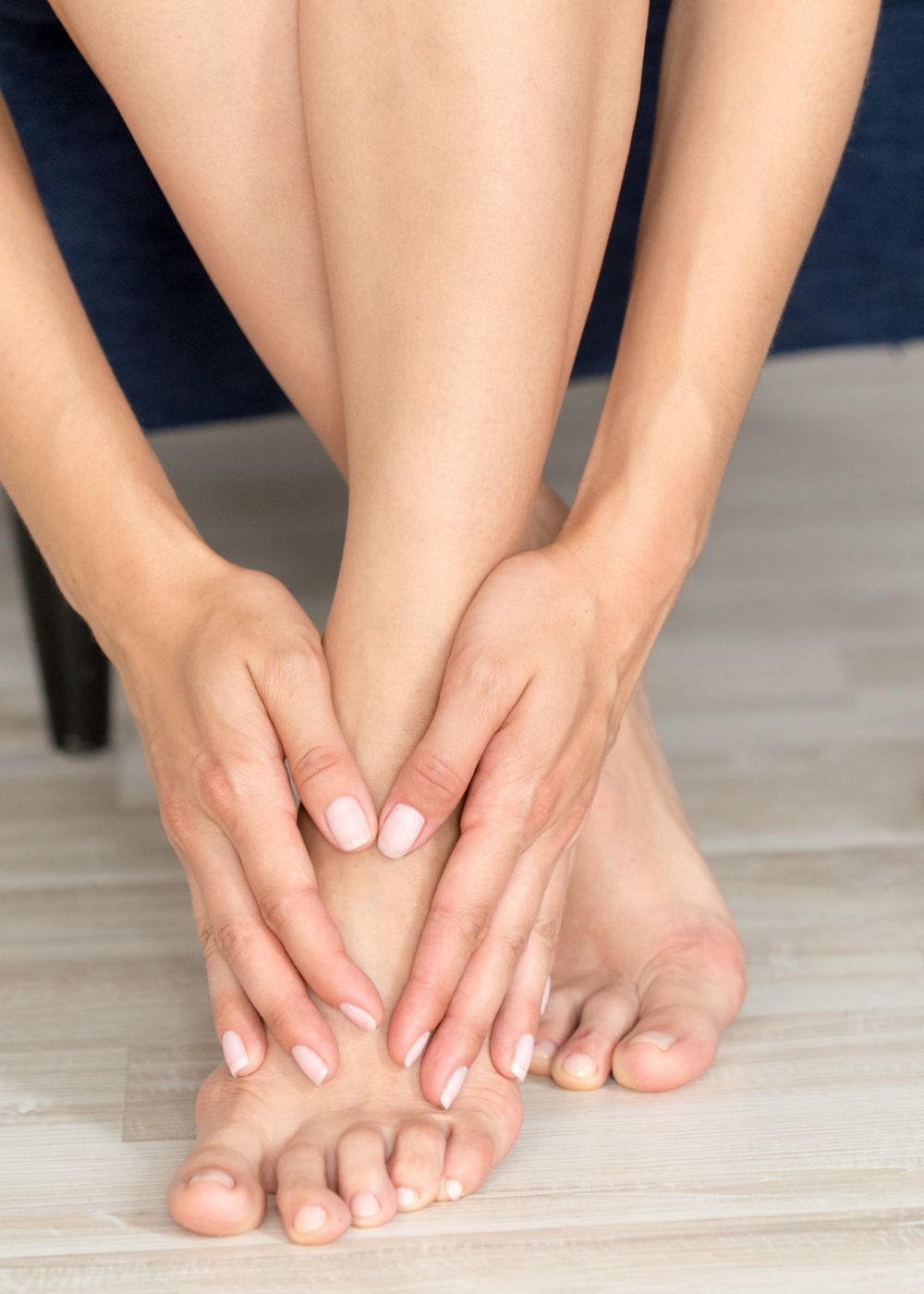Warts / Plantar Warts
Foot Warts / Plantar Warts
Most foot warts are harmless, even though they may be painful. They are often mistaken for corns or calluses. A wart, however, is caused by a viral infection from the Human Papilloma Virus or HPV. The virus generally invades the skin through small or imperceptible cut or abrasion in the thick plantar skin. While warts can appear anywhere on the skin, technically, only those on the sole are properly called plantar warts.
Plantar Warts

More serious foot lesions such as malignant lesions can sometimes be mistaken for a wart. Children, especially teenagers, tend to be more susceptible to warts than adults; some people seem to be immune to them. At The Chelsea Foot & Ankle Center, we see a LOT of warts in the HIV population.
Plantar warts tend to be hard and flat, with a rough surface and well-defined boundaries; warts are generally raised and fleshier when they appear on the top of the foot or on the toes. Plantar warts are often gray or brown (but the color may vary), with a center that appears as one or more pinpoints of black or darkened blood. It is important to note that warts can be very resistant to treatment and have a tendency to reoccur.
Plantar warts are often contracted by walking barefoot on infected surfaces. Like fungus, the virus that causes plantar warts thrives in warm, moist environments, making infection a common occurrence in public bathing facilities and gym locker rooms.
If left untreated, warts can grow to an inch or more in circumference and can spread into clusters of warts.
Like any other infectious lesion, plantar warts are spread by touching, scratching, or even by contact with skin shed from another wart. The wart may also bleed, another route for spreading.
Occasionally, warts can spontaneously disappear after a short time. Just as frequently, they can recur in the same location.
Pain from Plantar Warts
Plantar warts that develop on the weight-bearing areas of the foot – the ball of the foot, or the heel, can cause sharp, burning pain. Pain occurs when weight is brought to bear directly on the wart, although pressure on the side of a wart can create equally intense pain.
- Avoid direct contact with warts – from other persons or from other parts of the body.
- Avoid walking barefoot, except on sandy beaches.
- Change your shoes and socks daily.
- Check your children’s feet periodically.
- Keep your feet clean and dry.
Over-the-counter foot wart treatments are usually ineffective and their use can inadvertently destroy surrounding healthy tissue. Our practice can treat warts a variety of ways, including topical prescription medications, freezing/cryosurgery and laser removal.
Are you interested in treating your Warts / Plantar Warts?
If you are suffering from pain due to warts / plantar warts in New York City, or any foot and ankle problem, call our office today at (646) 929-4149!
Our Patients Love Us
An absolutely amazing experience. Dr. Ciment is an absolutely wonderful person – it is very evident that he truly cares about his patients.
What a pleasure to meet Dr. Shastri. She was extremely personable, listened intently and actually was able to treat my condition to a fair extent in the first sitting.
Highly recommend her.
